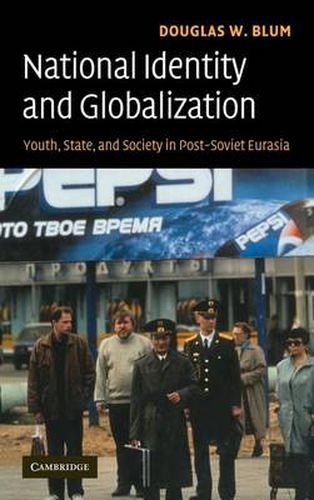Readings Newsletter
Become a Readings Member to make your shopping experience even easier.
Sign in or sign up for free!
You’re not far away from qualifying for FREE standard shipping within Australia
You’ve qualified for FREE standard shipping within Australia
The cart is loading…






Is globalization in danger of diluting national identities and ‘transnationalizing’ cultures? How can societies attempt to manage globalization and become developed while maintaining a viable national identity? In this 2007 study of three globalizing states and cities in post-Soviet Eurasia - Russia (Astrakhan), Kazakhstan (Almaty), and Azerbaijan (Baku) - Douglas W. Blum provides an empirical examination of national identity formation, exploring how cultures, particularly youth cultures, have been affected by global forces. Blum argues that social discourse regarding youth cultural trends - coupled with official and non-official approaches to youth policy - complement patterns of state-society relations and modes of response to globalization. His findings show that the nations studied have embraced certain aspects of modernity and liberalism, while rejecting others, but have also reasserted the place of national traditions.
$9.00 standard shipping within Australia
FREE standard shipping within Australia for orders over $100.00
Express & International shipping calculated at checkout
Is globalization in danger of diluting national identities and ‘transnationalizing’ cultures? How can societies attempt to manage globalization and become developed while maintaining a viable national identity? In this 2007 study of three globalizing states and cities in post-Soviet Eurasia - Russia (Astrakhan), Kazakhstan (Almaty), and Azerbaijan (Baku) - Douglas W. Blum provides an empirical examination of national identity formation, exploring how cultures, particularly youth cultures, have been affected by global forces. Blum argues that social discourse regarding youth cultural trends - coupled with official and non-official approaches to youth policy - complement patterns of state-society relations and modes of response to globalization. His findings show that the nations studied have embraced certain aspects of modernity and liberalism, while rejecting others, but have also reasserted the place of national traditions.